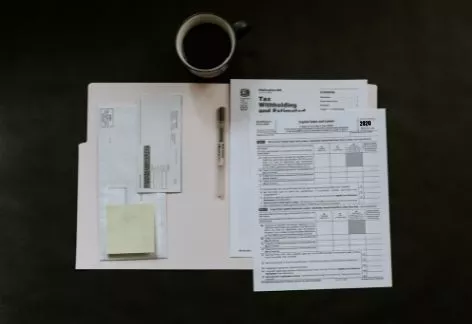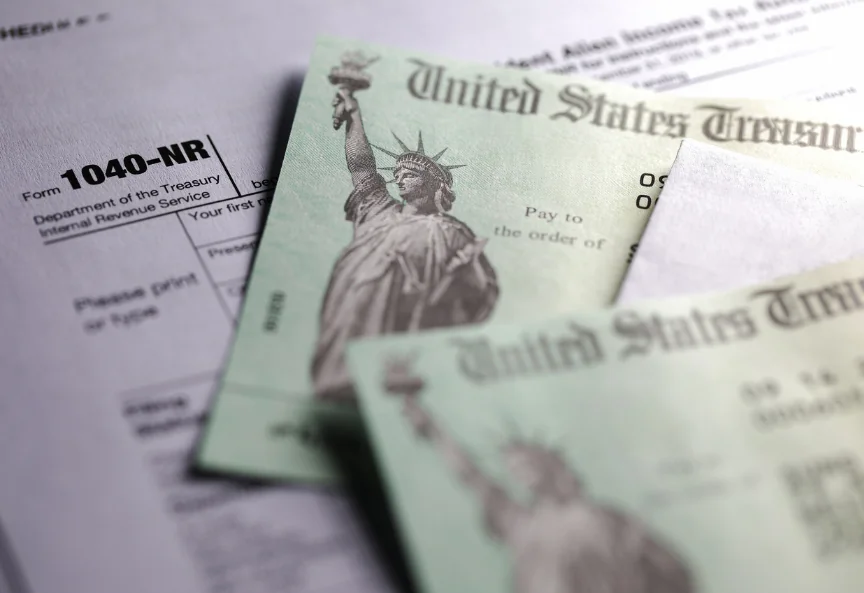When paying your taxes, there are many things to consider, including backup withholding. What is backup withholding, and how does it affect you, the taxpayer?
[lwptoc]
The government collects taxes on income, among other things. But there are many different types of income, and some taxpayers don’t always report the income they generate.
Furthermore, some taxpayers might not even realize that they need to account for taxes on some of the kinds of income that they earn or know how to calculate the respective tax rate for said incomes.
Backup withholding is the IRS’s method of ensuring that taxpayers who forget to report certain kinds of income still end up paying the taxes that they owe, usually to the detriment of the taxpayer (i.e. overpaying).
This is because many taxpayers pay taxes through their employer or the business they work for. However, that business is not required to withhold all incomes, and is allowed to assume that the taxpayer is doing their due diligence. If they aren’t, and the IRS catches wind of it, backup withholding ensures that Uncle Sam recoups some of the money it has lost.
What Is Backup Withholding?
In the IRS’s own words, there are “situations when the payer is required to withhold a certain percentage of tax to make sure the IRS receives the tax due on this income.” This is what the agency refers to as backup withholding. It has a flat tax rate of 24 percent on all income affected by it. There are types of income that are exempt from backup withholding, but in general, it applies to most income that must usually be reported on Forms 1099 and W-2G.
Backup withholding does not always trigger when the taxpayer isn’t reporting their income. Instead, it triggers when the IRS doesn’t have sufficient information to adequately track the income a taxpayer is receiving, specifically tied to their taxpayer identification number (TIN).
In other words, it usually triggers when a taxpayer uses the wrong TIN. This is referred to as Backup Withholding Program B, or BWH-B.
Underreporting or failing to report certain income is referred to as Backup Withholding Program C, or BWH-C.
Does Backup Withholding Apply to You?
You will know if backup withholding applies to you, as well as why the IRS is applying withholding to begin with. The IRS is required to send out four notices within 120 days prior to beginning backup withholding due to incorrect reporting or underreporting of income (BWH-C), and will send you a notice CP2100 and CP2100A if you are about to be subject to backup withholding due to incorrect or missing TIN (BWH-B).
Check through all the mail, letters, and notices the IRS has sent you to ensure that you aren’t currently under the effects of backup withholding on your income. Note that of the four notices the IRS sends before it begins program C, the final notice is the one that informs you that they have started.
What Income is Affected?
The IRS does not affect all types of income with backup withholding, just income usually listed in Form 1099 and W-2G. More specifically, this income includes:
-
-
- Interest payments
- Dividends
- Payment card and third-party network transactions
- Patronage dividends, but only if at least half the payment is in money
- Rents, profits, or other gains
- Commissions, fees, or other payments for work done as an independent contractor
- Payments by brokers
- Barter exchanges
- And more.
-
You can check the respective IRS newsroom post for more information on what income is subject to backup withholding.
Payments that are exempt from backup withholding include:
-
-
- Real estate transactions
- Foreclosures
- Cancelled debts
- Distributions from Archer MSAs
- Care benefits
- Distributions from a retirement account
- Distributions from employee stock
- Unemployment compensation
- And more.
-
How to Stop Backup Withholding
The IRS does not require you to personally inform them that you’re addressing the problem to stop backup withholding on your income, thankfully. What it does require you is to accurately amend your tax returns with any missing or underreported income and fix the issue of the wrong or missing TIN.
This includes going back and fixing old tax returns that you’ve already sent in. The IRS can basically hold you accountable for about 3-6 years’ worth of tax returns, but it’s generally a good idea to go through them all and amend as many as you can.
Being up-to-date and accurate on your tax returns is also usually a prerequisite for getting anything done with the IRS, including payment plans for late payments or accrued tax debts.
If you’re having trouble keeping up with your tax returns, then getting professional tax preparation services to help out can be a smart decision.
Avoiding Tax Problems in the Future
The IRS can be confusing to work with. While their job remains relatively simple – preventing tax fraud – decades of loopholes and tax schemes has led to complicated rulesets and a number of hoops most taxpayers aren’t even aware they need to jump through. It’s not particularly difficult to show up on the IRS’s radar, and even innocuous mistakes might lead to something like backup withholding.
Don’t let that discourage you from finding a way to resolve your problems with the tax man. The IRS is obligated to give you ample warning whenever it has to take action against your tax account and will do its best to explain what’s going on – and what it wants from you.
But if you want to preempt these issues, and better protect yourself against problems with the IRS in the future, nothing beats professional help.
A tax professional can review your accounting and your tax return writing habits and help correct them to ensure that you’re squeaky clean – without incurring greater costs, penalties, and interest payments from the government. Better yet, a tax professional might even help you figure out where you could be saving more money, and where you might be dropping the ball on potential deductions and tax credits (that you qualify for).
At Rush Tax Resolution, we can help you minimize your tax debts, avoid future tax problems, and help you find the most effective way to do your duty as a taxpayer without overpaying or incurring the wrath of the IRS.











